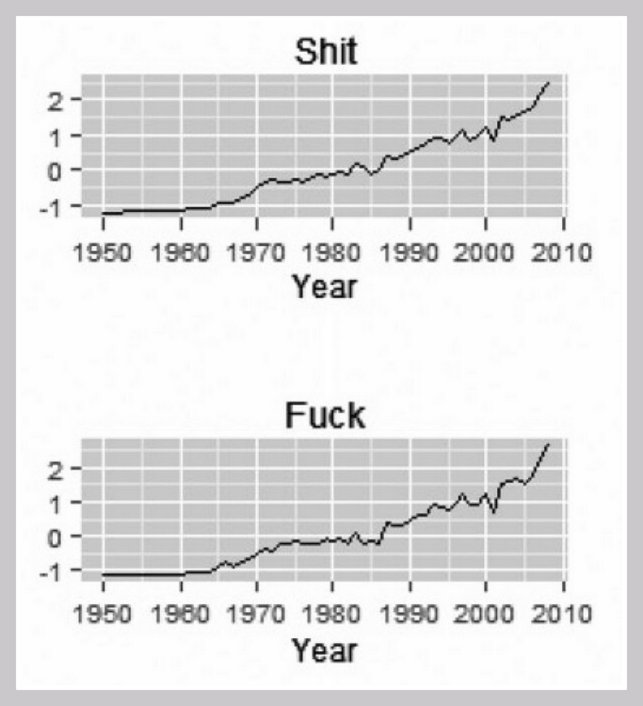Comedian George Carlin’s 1972 routine “the seven words you can never say on television” underlined his generation’s rejection of the niceties and constraints of post-war American society.
Looking back from the several decades later, we can see how the use of swear words has changed over time — and how that change captures the essence of the evolving American psyche.
Free expression, baby
The rising usage of swear words in literature suggests that American society is becoming increasingly individualistic, valuing free expression, according to a study by San Diego State University psychology professor Jean M. Twenge.
“The increases in swear words in books is part of a larger cultural trend toward individualism and free expression,” said Twenge, also the author of the book, Generation Me.
For the study, Twenge, along with SDSU graduate student Hannah VanLandingham and University of Georgia psychologist W. Keith Campbell, analyzed the textual content from tens of thousands of books published between 1950 and 2008, all cataloged by the Google Books database.
Within this corpus, they searched for instances of Carlin’s seven notorious words (which we won’t print here, but are noted in the study, or can be easily found online).
Swearing and cursing shows an increasing sense of individualism
They found a steadily rising trend of those words appearing in the books, the team reports in the journal SAGE Open. In total, American authors used the seven risqué words 28 times more often in the mid-2000s than the early 1950s, the study notes.
“Forty-five years after George Carlin’s routine, you can say those words on television — and in books,” Twenge says.
MORE: See 150 words people often spell wrong. How do you compare?
The findings suggest that these words have become much less taboo over time, she said. One interpretation is that people today value free expression more than they did several decades ago.
That dovetails with previous research, which has found that American society is becoming increasingly individualistic. That characteristic is especially prominent in young people, Twenge said.
“Millennials have a ‘come as you are’ philosophy, and this study shows one of the ways they got it: The culture has shifted toward more free self-expression,” she said.
The charts: How swearing has increased since the 1950s
Here are just two of the swear words tracked in the study mentioned above, showing that swearing really took off in the late 60s and early 70s… kind of like the arrival of Gen X gave people a reason to use colorful language…









